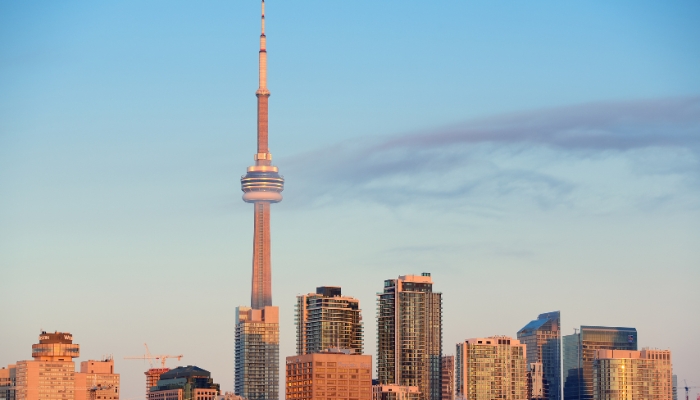After six intense days of labour disruption that left one of Canada’s most iconic tourist attractions partially operational, food and beverage workers at the CN Tower have reached a settlement with their employer, ending a strike that threatened to disrupt summer tourism at the landmark.
The 300 workers, represented by the Canadian Union of Public Employees (CUPE) Local 2, voted yesterday to accept a new contract that addresses key concerns around wages, benefits, and scheduling. The agreement comes just as Toronto enters its peak summer tourism season.
“This was about respect and fair compensation for the people who help make the CN Tower experience memorable for millions of visitors,” said Sarah Doherty, president of CUPE Local 2, speaking outside the tower following the ratification vote. “Our members stood together and achieved meaningful improvements.”
The settlement includes a 14.5% wage increase over three years, enhanced health benefits, and new scheduling protections that workers had identified as critical issues when they walked off the job last week. The deal also includes retroactive pay dating back to January when their previous contract expired.
The strike had forced the closure of the tower’s popular 360 Restaurant and EdgeWalk attraction, though the observation deck remained open with limited services. Canada Lands Company, which operates the CN Tower, had brought in management personnel to maintain basic operations during the labour dispute.
Tourism officials expressed relief at the resolution. According to Destination Toronto, the CN Tower attracts approximately 1.5 million visitors annually and serves as an anchor for downtown tourism.
“Having the CN Tower fully operational for summer is crucial not just for the landmark itself, but for the entire tourism ecosystem downtown,” said Miguel Rodrigues, a tourism industry analyst with the Toronto Board of Trade. “Many visitors plan their entire Toronto experience around this attraction.”
The dispute had highlighted growing tensions in Toronto’s tourism and hospitality sector, where workers have increasingly organized for better conditions amid rising living costs. According to Statistics Canada data, housing costs in Toronto have risen 18% since 2020, while wages in the hospitality sector had increased by only 9% over the same period.
For visitors like the Patel family from Calgary, the resolution came just in time. “We arrived yesterday planning to eat at the restaurant, only to find it closed,” said Anita Patel, waiting with her family outside the tower. “We rebooked for tomorrow after hearing the strike ended. It would have been disappointing to miss the complete experience.”
The tower’s management issued a statement welcoming the settlement. “We value our employees and are pleased to have reached an agreement that works for everyone,” said Jennifer Carter, communications director for the CN Tower. “We’re excited to return to full operations and continue providing world-class experiences for our guests.”
Workers began returning to their posts immediately after the vote, with management expecting all attractions and dining options to be fully operational by the weekend. The 360 Restaurant, which features a rotating view of Toronto’s skyline, has already started accepting reservations again.
Labour experts see this settlement as part of a broader pattern in Canada’s post-pandemic economy. “What we’re seeing across multiple sectors is workers leveraging tight labour markets to secure better compensation packages,” said Dr. Emma Wilson, a labour relations professor at Ryerson University. “The pandemic created a moment of reflection for many workers about their worth and working conditions.”
For CN Tower employees like Marcus Chen, who has worked as a server at the 360 Restaurant for eight years, the strike’s resolution brings both relief and satisfaction. “Standing outside the tower instead of working inside it was difficult, but necessary,” Chen said. “Toronto is becoming unaffordable for service workers. This contract helps us keep pace with the cost of living while continuing to deliver experiences visitors expect.”
Tourism industry representatives note that the successful resolution avoids what could have been a significant disruption to Toronto’s summer tourism season, which is projected to reach pre-pandemic levels for the first time since 2019.
The CN Tower, which stands 553 meters tall, has been a defining feature of Toronto’s skyline since its completion in 1976, and remains one of Canada’s most-visited attractions and a symbol of the city recognized worldwide.






